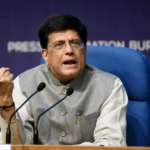The one-year grace period, known as the “on-ramp,” for student loan borrowers who missed payments has expired, putting millions of Americans at risk of credit score damage. As of September 30, missed payments on student loans will once again be reported to credit agencies, meaning borrowers who fall behind could see negative effects on their credit.
The End of the 12-Month ‘On-Ramp’
The 12-month “on-ramp” period was designed to give borrowers time to reintroduce student loan payments into their budgets without immediate credit damage. During the on-ramp, although interest accrued, missed payments did not negatively affect borrowers’ credit scores. Now that it has expired, missed payments will be reported to credit bureaus, potentially hurting borrowers’ ability to secure future loans and affecting interest rates on credit cards, mortgages, and other types of borrowing.
This development is significant for millions of Americans who have struggled to resume payments after a long pause.
Financial Strain on Borrowers
Studies suggest that a significant number of borrowers are not prepared for this shift. According to a report by the National Endowment for Financial Education (NEFE), 26% of borrowers made no payments at all during the past year, while nearly half of borrowers made some payments since the end of the payment pause. Many are still struggling to incorporate these payments back into their budgets.
“For many households, cutting $500 to $1,000 from the monthly budget is a substantial hit,” said Billy Hensley, President of NEFE. This financial strain is expected to continue affecting borrowers as they manage rising costs.
Concerns Over Credit Scores
With the end of the on-ramp, concerns over credit scores are mounting. According to a survey by Credit Karma, 20% of borrowers haven’t made any payments since the pause ended, and 69% of those who have fallen behind don’t believe they’ll be able to pay down their accrued interest. Borrowers are now worried that their late payment history will negatively impact their credit scores.
“If a borrower misses their October payment and remains delinquent through the next few months, by January, they’ll be reported as 90 days past due,” said a representative from Credit Karma. This could have serious implications for borrowers’ future financial opportunities.
Potential Consequences
While some borrowers hold out hope for future debt forgiveness, missed payments could be costly in the meantime. Nearly half of all borrowers expect some form of debt relief, whether through public service programs, employer contributions, or government forgiveness, according to Sallie Mae’s report.
Still, resuming student loan payments after a four-year pause will likely require sacrifices. NEFE’s research shows that approximately three-quarters of borrowers have already made changes to their budgets to manage their student loan obligations. With no safety net, borrowers will need to navigate these challenges to avoid long-term financial repercussions.




